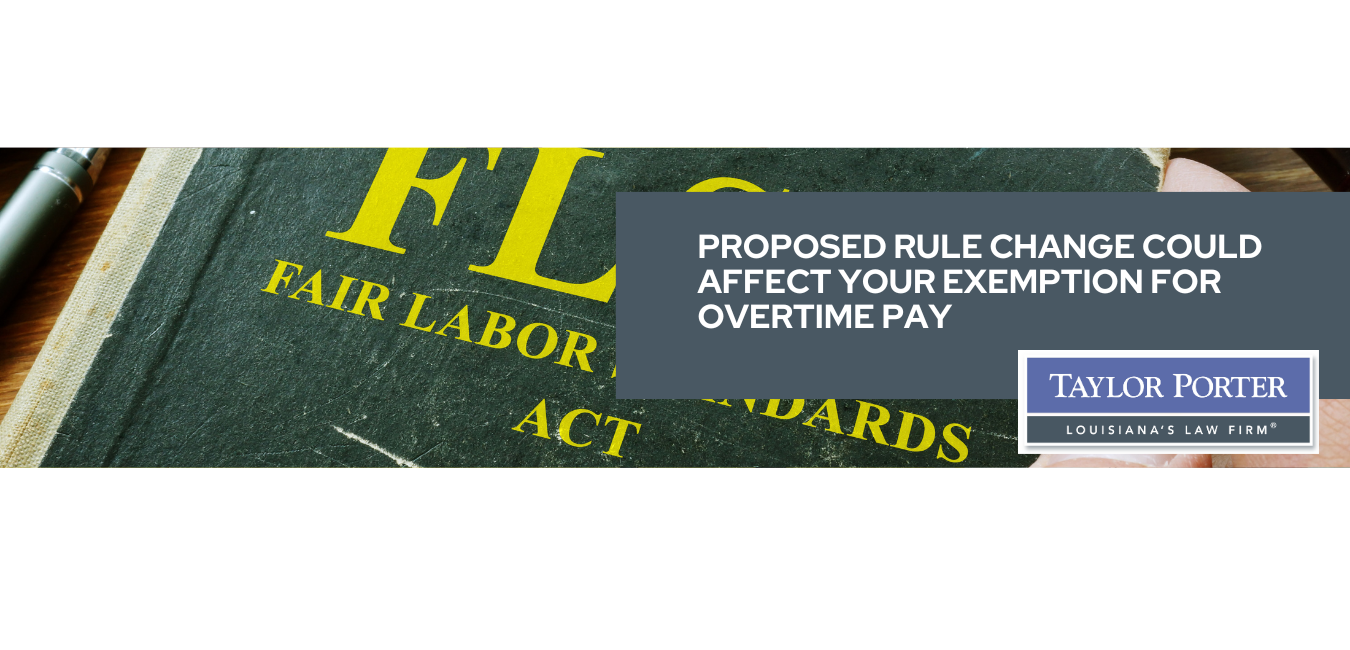What Issues Should Landowners Consider Before Entering into Mineral Leases and Similar Agreements?
By Eddie Hughes
Partner, Taylor Porter; Oil/Gas/Regulated Industry Practice Group Leader
eddie.hughes@taylorporter.com
 The Austin Chalk Play stretches across the State of Louisiana. Oil and gas companies are now descending on Louisiana to lease acreage to exploit the Austin Chalk. Today, hundreds of thousands of acres in Louisiana alone have been leased. Many of our clients have been approached about Oil, Gas & Mineral Leases, Options to Lease, and Mineral Lease Agreements. As a Louisiana landowner or mineral rights owner, what should you look for when you are approached to lease your land to explore for minerals (usually oil and gas)?
The Austin Chalk Play stretches across the State of Louisiana. Oil and gas companies are now descending on Louisiana to lease acreage to exploit the Austin Chalk. Today, hundreds of thousands of acres in Louisiana alone have been leased. Many of our clients have been approached about Oil, Gas & Mineral Leases, Options to Lease, and Mineral Lease Agreements. As a Louisiana landowner or mineral rights owner, what should you look for when you are approached to lease your land to explore for minerals (usually oil and gas)?
Here are some of the things we consider as oil and gas lawyers when we are asked to help with oil and gas lease negotiations by our clients.
How much are they paying?
How much is the “bonus?” (This the initial amount they going to pay you to lease your rights to explore for minerals on your property) There are a number of factors in determining whether the offer is a good one (i.e. what did they offer your neighbors; has your property been leased before; is this a “hot “area?)
Is the lease paid-up or will there be “delay rentals?” In other words, will there be only one bonus payment before the company is required to drill, or will the company have to pay a rental every year before it has to drill or produce?
How much is the “royalty?” (This is the percentage of production the company will pay you if it produces minerals under the lease. Years ago, the standard was a 1/8th royalty, but now the standard is 20-25 percent, with some leases going even higher. But beware: This calculation is not as simple as it seems.) Will costs be deducted? Which costs?
How long is and what are the terms of the lease?
What is the term of lease? How long does the company have until it is required to drill or produce? REMEMBER: With a few exceptions, a lease will remain in effect as long as there is production.
What happens if the well is shut down for a time? The shut-in provision will provide that the lessee must pay the lessor a certain amount during this time. Many shut-in provisions provide time limitations so the lessee can’t pay shut-in payments forever without producing the well.
How is the property affected?
After the bonus and the royalty, this can be one of the most important issues. Consider these questions concerning how the property will be affected:
- Will there be surface operations on the property (drilling, tanks, etc.)? Do you want the company to limit its operations to a specific area of your property? Do you want to limit the company to operations during specific times? Do you only want to allow directional drilling from another tract of land?
- Can the company build roads on the property? What kind of roads can they build? What happens at the end of the lease? Does the company have to remove the road?
- Can the company dig a canal on the property? Can the company use the canal after the lease ends to access other’s property? Does the company have to fill the canal at the end of the lease?
- Are salt water disposal wells allowed on the property under the lease? What will the company do with the produced salt water?
- What happens if the company damages the property (i.e. hydrocarbon or salt water leaks or other environmental contamination)? What is the standard of remediation? Original condition?
- What if there are damages to crops or timber? How is that valued?
- What happens to the hunting rights on the property? What if there is an existing hunting lease on the property?
- Can the company do seismic testing? If so, whose data is it? Is the seismic data confidential?
How extensive are the company’s rights?
Asking for “Pugh Clause” is common practice. A Pugh Clause prevents the company from being able to hold the entire tract of land and/or all depths when it is only producing from a smaller geographic area or from a specific geologic zone. The Pugh Clause requires the company to release certain parts of the property and/or depths in the event it doesn’t produce from certain areas, thereby opening up the option to lease to others to explore for minerals on the released lands.
“Force Majeure” clauses are also common, but how extensive should it be? “Force majeure” clauses are designed to protect the lessee from being liable for damages or the lease from terminating for causes beyond the lessee's control, like Acts of God, strikes, lockouts, earthquakes, etc. … But what constitutes a force majeure event, what relief does the lessee get, and how long is that relief? Those are all important considerations.
Are you warranting that you own the property or minerals under the land? By agreeing to a warranty provision, you are effectively guaranteeing that you have title to the property and minerals and no other party can make a claim to them. But what happens if it turns out you don’t? Do you have to refund the bonus or royalties already paid? The warranty or no warranty provision can address these issues.
How is the landowner/lessor protected?
In addition to the surface damages provisions above, the lease should always include defense, indemnity and hold harmless provision. This provision protects the lessor from claims for damages or other liability arising out of the activities of the lessee.
To give the indemnity provision teeth, the lease should provide minimum insurance requirements for the lessee. The defense and indemnity provision is essentially worthless if the lessee has no money to defend and indemnify the lessor. When a large publicly traded company that is self-insured is involved, the insurance requirement may be relaxed, but it is still important in the event the large company assigns the lease.
To protect against a “fly by night” lessee becoming the operator, lessees should request a consent to assign provision. This provision requires the lessee to obtain the lessors consent in the event it wants to assign (or transfer) the rights and obligations under the lease to another entity. The provision should also provide that the original lessee and all subsequent assignees should remain liable under the lease.
Conclusion
Despite the amount of information above, this article merely scratches the surface of the issues a potential lessor must think about when negotiating an oil, gas and mineral lease. This is by no means a comprehensive listing of the issues involved. There are many other considerations when entering into a lease.
For more information about Oil, Gas & Mineral Leases, Options to Lease, and Mineral Lease Agreements, please do not hesitate to contact me at eddie.hughes@taylorporter.com
This website is for general information purposes only. Information posted is not intended to be legal advice. For more information, please see our Disclaimer message.
See how we can help. Contact us today
8th Floor • 450 Laurel Street • Baton Rouge, LA 70801 • 225-387-3221
- Disclaimer
- © Taylor, Porter, Brooks & Phillips L.L.P. All rights reserved.






